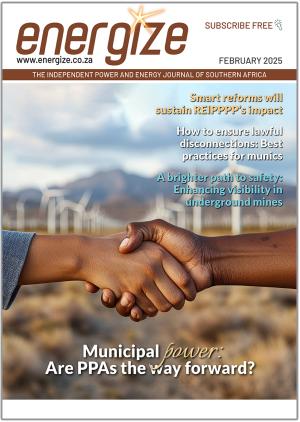South Africa’s oil and gas sector has played “second fiddle” to other energy sources, particularly renewables, over the past five years but recent restructuring of the Department of Mineral Resources and Energy into two separate entities has enabled government to focus on advancing the industry.
This was the message from Minister of Mineral and Petroleum Resources Gwede Mantashe, speaking at Africa Oil Week in Cape Town this week (October 8-10).
The importance of new regulatory measures, including establishment of the South African National Petroleum Company (SANPC) and the Petroleum Products Amendment Bill are essential to unlock the potential of the country’s oil and gas discoveries, he said.
This includes discoveries of gas and condensate in blocks 11B and 12B in the South Outeniqua Basin and finds in the South African Orange Basin. This under-explored deep water area is seen as a promising frontier for future oil and gas production, Mantashe added. There is also growing interest in the South African Orange Basin where TotalEnergies is preparing for drilling in the Deep Water Orange Basin block while exploration is advancing in Block 3B/4B and the Northern Cape Ultra-Deep Water Block.
The Karoo Basin has an estimated 5,9 trillion cubic meters of shale gas affording opportunities for long-term, cheaper indigenous gas supply that could contribute to South Africa’s growing energy needs, Mantashe pointed out.
The Department of Mineral and Petroleum Resources has already gazetted its intention to conduct a geophysical investigation across the region.
Regulatory support
In terms of regulatory support, the Upstream Petroleum Resources Development Bill, recently passed by Parliament, is set to regulate the upstream petroleum industry separately for the first time in South Africa’s history, Mantashe said. This law is expected to stimulate the sector’s growth as in countries like Namibia where recent oil discoveries have potential to double the economy by 2040. Establishment of the SANPC will enhance the country’s capacity to manage its petroleum resources and develop partnerships in the sector.
South Africa stands to gain financially from these discoveries. “The main hindrance to gas and oil industries in South Africa is unabated and frivolous litigation against the exploration and production of oil and gas by non-governmental organisations and foreign-funded groups,” Mantashe said.
Despite these challenges, successful seismic data acquisition, by Searcher in April 2024 on South Africa’s west coast, demonstrated that exploration can proceed without environmental harm, he added. “Government has also made progress in securing local liquid fuel supplies with the Central Energy Fund acquiring assets at the SAPREF Precinct to reinforce supply in the wake of several refinery shutdowns.”















